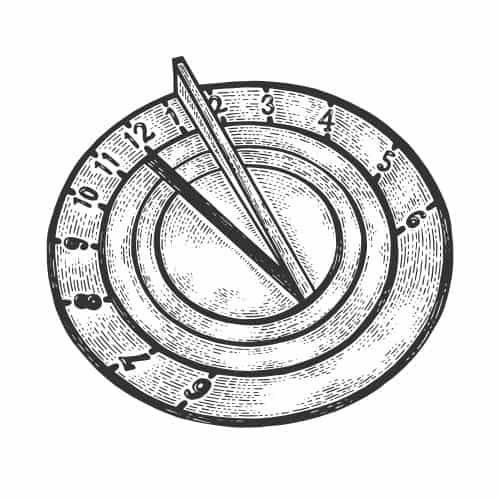The biblical hour: The flawless timely truth
Learn about the biblical calendar and how to calculate the biblical hour without bias using the prescribed biblical elements of timekeeping.
The concept of the hour—the biblical hour has been elusive on many levels. It never occurred to me to even consider that this needed investigating. The idea that timekeeping in the scriptures differed from today's timekeeping never crossed my mind.
Timekeeping is essential throughout the scriptures, and the hour is part of that equation. The gregorian calendar, used by the Romans, does not accurately portray God's calendar. Its full day is split into 24 hours of equal lengths but does not address all scriptural requirements.
This post aims to understand the scriptural hour and how to calculate it using scriptural timekeeping.
The Gregorian hour
Today we live under the Roman banner. Evidence of this is seen through:
the instigation of the gregorian calendar by the Papacy throughout the world
the Latin-based languages such as English and those using Latin characters
Although Rome (Papacy) does not rule the world, its remnants are seen everywhere.
The hour in use today has a fixed timespan, measured in 1⁄24 of a day. The day is divided into 24 hours equally, with 1 hour representing 60 minutes of equal divisions.
the biblical hour
The basis of timekeeping is based on the sun, moon and stars; each is playing their part in the biblical calendar. In the next passage, Jesus gives us insight into the basis for the hour.
8. His disciples say unto him, Master, the Jews of late sought to stone thee; and goest thou thither again?
9. Jesus answered, Are there not twelve hours in the day? If any man walk in the day, he stumbleth not, because he seeth the light of this world.
John 11:8-9 KJV
Jesus states the day (daytime) contains twelve hours. However, this statement conflicts with the Gregorian calendar idea of the hour. The simple fact highlighted by the day (daylight) being shorter or longer than 12 gregorian hours. The season and location change the day's length, creating mutual exclusivity between the Bible and the gregorian calendar.
If the diaspora of Israel used the exact biblical timekeeping, there must be a consistent way of determining the hour. In the following passage, the sundial is used for daytime time-keeping. Using the sun, one fundamental unit of timekeeping, keeps this approach in line with the scriptural basis of timekeeping.
8. And Hezekiah said unto Isaiah, What shall be the sign that the LORD will heal me, and that I shall go up into the house of the LORD the third day?
9. And Isaiah said, This sign shalt thou have of the LORD, that the LORD will do the thing that he hath spoken: shall the shadow go forward ten degrees, or go back ten degrees?
10. And Hezekiah answered, It is a light thing for the shadow to go down ten degrees: nay, but let the shadow return backward ten degrees.
11. And Isaiah the prophet cried unto the LORD: and he brought the shadow ten degrees backward, by which it had gone down in the dial of Ahaz.
2 Kings 20:8-11 KJV
If we use the sundial to calculate time, how do we address the issue of the varying length of the day (daylight) around the world? To solve the mystery of longer and shorter days when using the sundial, you must arrive at the realisation that the length of the hour for longer days is longer and for shorter days is shorter.
There is no idea of a fixed length hour
The scriptural hour is the day (daytime) divided by twelve, irrespective of whether the hour is longer or shorter than 60 minutes. The sundial's shadow will continually adapt to a longer or shorter hour since this is fundamentally how it works.
Sundial
A sundial is a device that tells the time of day when there is sunlight by the sun's apparent position in the sky. In the narrowest sense of the word, it consists of a flat plate (the dial) and a gnomon, which casts a shadow onto the dial. As the Sun appears to move across the sky, the shadow aligns with different hour-lines marked on the dial to indicate the time of day.
Conclusion
The main element at the core of misunderstanding the hour is the concept of a fixed 60-minute timespan. Because of this firmly ingrained concept of an hour it is difficult to come to the realisation. The biblical hour is based on the sundial without a fixed timespan, but rather a consisent division of daylight.
The diaspora of Israel (Psalms 73:1), even those with clean hearts, must be able to untangle the calendar. They will remember the laws of God and come to Him.
All the ends of the world shall remember and turn unto the LORD: and all the kindreds of the nations shall worship before thee.
Psalms 22:27 KJV





